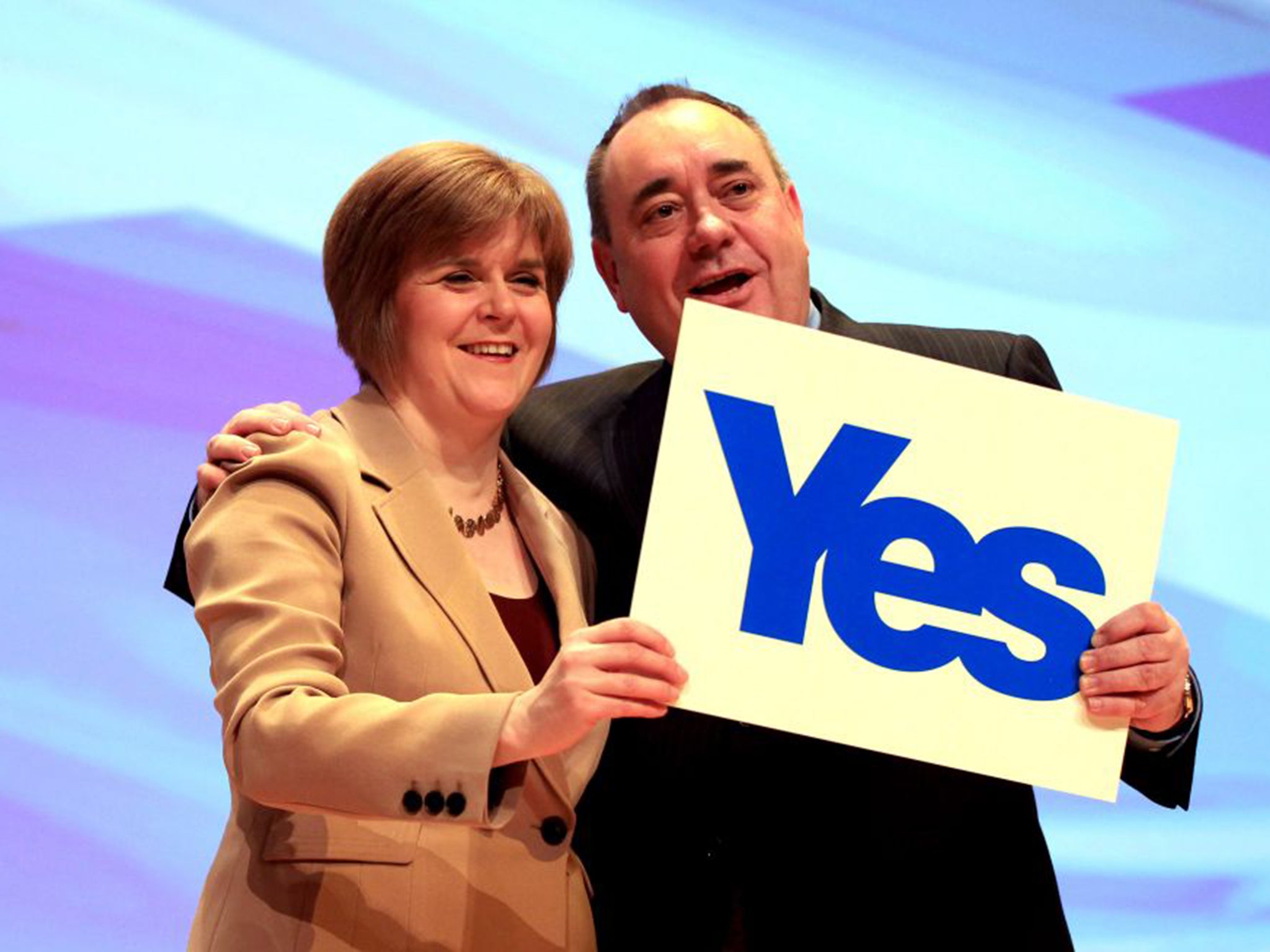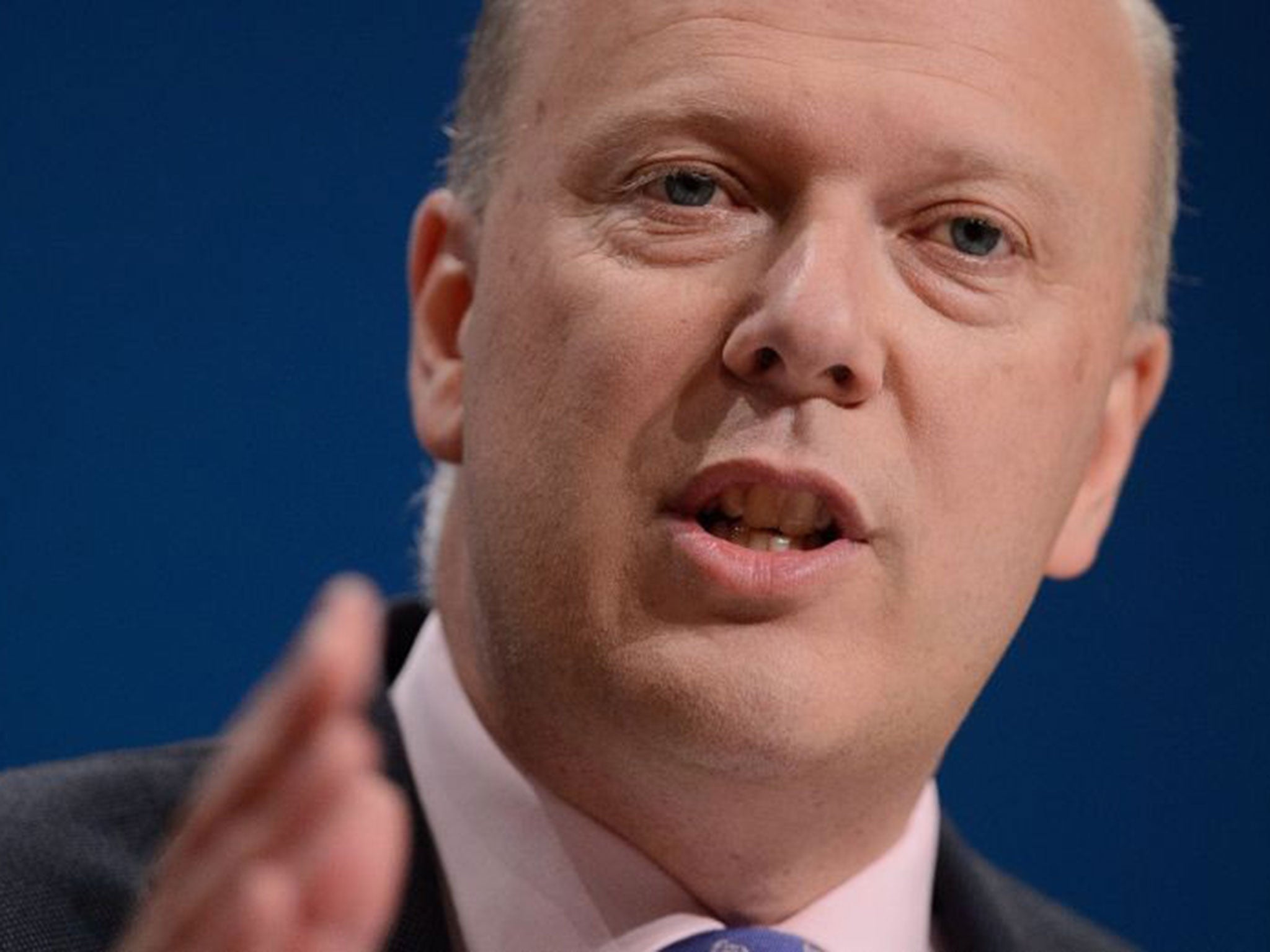Nicola Sturgeon threatens second independence referendum over 'English votes for English laws'
First Minister suggests plans to create two tiers of MPs fit her conditions of 'substantive changes' for second referendum

Your support helps us to tell the story
From reproductive rights to climate change to Big Tech, The Independent is on the ground when the story is developing. Whether it's investigating the financials of Elon Musk's pro-Trump PAC or producing our latest documentary, 'The A Word', which shines a light on the American women fighting for reproductive rights, we know how important it is to parse out the facts from the messaging.
At such a critical moment in US history, we need reporters on the ground. Your donation allows us to keep sending journalists to speak to both sides of the story.
The Independent is trusted by Americans across the entire political spectrum. And unlike many other quality news outlets, we choose not to lock Americans out of our reporting and analysis with paywalls. We believe quality journalism should be available to everyone, paid for by those who can afford it.
Your support makes all the difference.A second referendum on Scottish independence could be held if the Conservative government’s plans to introduce ‘English votes for English laws’ go ahead, Nicola Sturgeon has suggested.
Earlier this year the SNP leader said her party would only push for a second referendum if there was a “substantive change in circumstances,” pointing to the prospect of the UK leaving the European Union.

But yesterday she said the government’s plans to give English and Welsh MPs a new “veto” over laws identified as affecting only their constituents showed “great disrespect” to Scotland and suggested the proposals would increase support for Scottish independence.
Under the proposals, announced yesterday by Leader of the House Chris Grayling, MPs would effectively be divided into two tiers, with Scotland MPs effectively reduced to by-stander status in the early and middle stages of a large majority of legislation passing through the UK parliament.
Ms Sturgeon described the plans as a “constitutional shambles” and accused David Cameron of displaying a “staggering” degree of “hypocrisy and incoherence”.

It was not just SNP politicians who were outraged. Sir Gerald Kaufman, Labour MP and Father of the House, told Mr Grayling the very idea of “English votes for English laws” was inherently “racist”, while Fiona McTaggart, a former Labour minister, said the proposals would act as “a knife in the heart of the union.”
Responding to the proposals, Ms Sturgeon said in a statement: "The Tories have produced a constitutional shambles - staggering in the extent of its hypocrisy and incoherence.
"Under these plans - which are all about cutting Scottish MPs out of votes which impact on Scotland and our budget - the Tories are proposing an 'English veto' and 'double majority'.
"I have been very clear that, at least in part, the level of support for independence will be determined by what the Tory government at Westminster does, as well as what the SNP Government does. And there is no question that the great disrespect shown to Scotland in these proposals is likely to have more people asking whether Westminster is capable of representing Scotland's interests at all."
Q&A: English votes for English laws
Q. So is that it – the West Lothian riddle, finally solved?
A. Not quite. Grayling has merely restructured Westminster’s political games rather than deliver a genuine solution. The Tory MP Martin Vickers asked where Grayling’s “stumbling” was heading towards. The answer is either a federalist UK, or Scotland leaving the UK. No democratic chamber where there are two classes of members is likely to endure.
Q. Surely the government has thought hard on this?
A. No they haven’t. After the panic-ridden deployment of the “vow” to keep Scotland in the UK club, it took Downing Street only a couple of hours to wreck any post-referendum unity. William Hague was quickly despatched to sketch out a plan to placate English Tories angry at the concessions Scotland was about to be handed. John Redwood offered a plan strikingly similar to what Grayling told the Commons, suggesting not much more thought has gone into this.
Q. The SNP members in the Commons, all 56 of them – they’ll be furious?
A. Furious at what? The SNP have a vested interest in seeing the union fail, and Pete Wishart is entirely correct in forecasting Grayling has helped the nationalists’ cause. Extend the consequences of what this means and it’s hard to see how a Scottish MP can ever again become prime minister, or indeed hold many of the top ministry jobs. Limit the ambition of members of any club, and they’ll take their business elsewhere – in this case out of the union.
Q. Is the change really that big?
A. There will be three new legislative grand committees: one for English MPs, one for English and Welsh MPs, and one for English, Welsh and Northern Ireland MPs. They will dictate what a lot of the full House gets to vote on.
Q. So where are the Scots?
A. Exactly.
Q. The SNP MP Ian Blackford asked why the Conservatives are bothering with all this - why not just create an English Parliament ?
A. Good question. Scotland already resembles a one-party state. The nationalists have tight control of Holyrood. Labour, the LibDems and the Tories all have only one MP north of the border. This isn’t an English Parliament, but it’s close.
Join our commenting forum
Join thought-provoking conversations, follow other Independent readers and see their replies
Comments